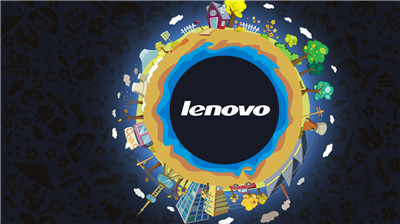(单词翻译:单击)
Lenovo, the largest seller of personal computers, is spurning what Yang Yuanqing, chairman and chief executive, has described as the “so-called new business model” of content-subsidised hardware that has taken China by storm, and will stick with devices.
全球最大的个人计算机销售商联想(Lenovo),正在摒弃被其董事长兼首席执行官杨元庆称为用内容补贴设备的“所谓的新业务模式”,将专注于设备。
Speaking yesterday, Mr Yang said Lenovo — which has made the jump into smartphones — would focus on developing devices with voice recognition.
杨元庆昨日在发表讲话时表示,已大举进军智能手机业务的联想,将致力于研发具有语音识别功能的设备。
The strategy, designed to carry the company into the post-smartphone era, is a test of Lenovo’s ability to evolve from its roots as the grandfather of China tech — it was founded in 1984 — to a landscape ruled by nimbler, rapidly developing rivals.
该战略旨在将联想带入后智能手机时代,它将考验创建于1984年的联想作为中国科技行业一家元老级公司,能否适应由更灵活和快速发展的竞争对手主导的环境?

Upstart Xiaomi, for example, last year became the largest seller of smartphones in China, based on a savvy internet-first marketing strategy and using content to sell phones.
例如,借助精明的互联网优先营销策略,并利用内容来销售手机,手机新贵小米去年成为中国智能手机销量最高的公司。
Lenovo executives privately chafe at the comparison, but the numbers illustrate the new order. Based on its last funding round, Xiaomi is worth $45bn — roughly three times Lenovo’s market capitalisation — despite the fact that it has less than one-third of the PC maker’s sales.
联想高管私下里对这种对比感到不满,但数据揭示了新秩序。按照最近一轮的融资,小米的估值达到450亿美元,差不多是联想市值的3倍,尽管其销售额不足联想的三分之一。
“We’re going to show the world that innovation still matters,” Mr Yang said in an interview with the Financial Times at Lenovo’s inaugural Tech World expo in Beijing, where it unveiled a new logo.
联想在北京举行了首届“联想科技创新大会”(Lenovo Tech World),并在会上发布了新的标识。杨元庆在会上接受英国《金融时报》采访时表示:“我们将向全世界表明,创新仍至关重要。”
“This is particularly important in China, where all the players are just focusing on the so-called new business model, to use the content and services to subsidise hardware.
“它在中国尤其重要。在中国,所有公司只是聚焦于所谓的新业务模式,使用内容和服务来补贴硬件。”
“We will tell the market and the world that this is not the only thing you should be focusing on. We should still focus on innovation, we should still focus on technology.”
“我们将告诉市场乃至世界,这不是你应该聚焦的唯一事情。我们仍应该聚焦于创新,我们仍应该聚焦于技术”。
Lenovo, which announced results last week, missed fiscal-year profit targets on the back of softening smartphone sales, and took its first tentative steps into the new era when it launched its first “wearable” internet device, a fitness band, in January.
联想上周发布了财报,由于智能手机销售不佳,该公司未能实现本财年的利润目标。联想在今年1月发布了一款智能腕带,这是其首款“可穿戴”互联网设备,从而向这个新时代试探性地迈出了第一步。
However, Mr Yang is candid regarding the fact that the company is still considering how best to tackle the new era following the smartphone boom of the past few years.
然而,杨元庆坦承,经过过去几年的智能手机蓬勃发展,该公司仍在考虑如何最好地应对这个新时代。
He was also short on specifics about timing and nature of devices, but cited a five-pronged “smart connectivity” strategy focusing on voice-activated devices, services and access to personal data.
他也没有透露推出新款设备的时机和性质,但指出了致力于语音操作设备、服务以及个人数据获取的5点“智能互联”战略。
Many smartphone makers have begun to emulate the Xiaomi model, as have content producers. Lenovo’s video-streaming company LeTV launched smartphones based on the principle of hardware being a content “gateway”.
许多智能手机制造商开始效仿小米模式,内容制作商同样如此。联想旗下的视频流公司乐视(LeTV)基于硬件是内容“门户”的原则推出智能手机。
Mr Yang cited Amazon’s foray into the device business, as well as Google Nexus phones, to support his scepticism.
杨元庆以亚马逊(Amazon)进军设备业务以及谷歌(Google)推出Nexus手机来表明自己的怀疑是合理的。
“I don’t think that by now that model [Xiaomi’s] is a proven model,” he said. “They’re still a smartphone company. They’re not a content company.”
他说:“我认为到现在为止(小米的)那种模式还不是经过验证的模式。它们仍是一家智能手机公司,它们不是内容公司。”
He added that Lenovo had learned some lessons.
他补充称,联想已汲取了一些教训。
“When the internet becomes more and more popular, we must pay attention to how to leverage the internet to transform our business model. Lenovo is definitely also working on that.
“当互联网越来越流行的时候,我们必须重视如何利用互联网转变我们的业务模式。联想肯定也在这方面努力。”
“Obviously we think the people need both the device and the content, but different companies have different expertise and should focus on different things.
“显然,我们认为人们既需要设备,也需要内容,但不同的公司有不同的专长,理应致力于不同的事情。”
“We should definitely focus on the devices and co-operate with content and service providers to ensure that our customers have the best experience.”
“我们当然应该致力于设备,并与内容和服务提供商合作,以确保我们的客户有最佳的体验。”


